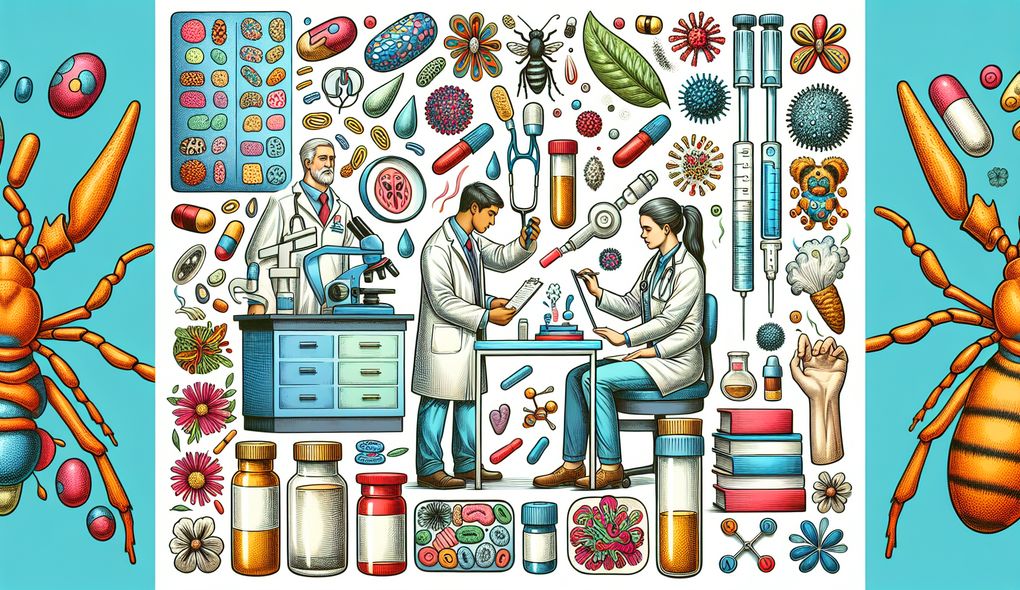How do you effectively communicate with patients to educate them about their conditions and treatment options?
SENIOR LEVEL

Sample answer to the question:
In my experience, effective communication with patients is crucial in educating them about their conditions and treatment options. I always start by building a rapport with the patient, making them feel comfortable and heard. I then explain their condition in simple terms, using visual aids if necessary. I also encourage them to ask questions and address any concerns they may have. When discussing treatment options, I present them with all the available choices, explaining the pros and cons of each. I emphasize the importance of informed decision-making and involve the patient in creating a treatment plan that aligns with their goals and preferences.
Here is a more solid answer:
As an experienced Allergy and Immunology Physician, I have in-depth knowledge of allergic and immunologic diseases. When communicating with patients, I ensure that I am using language that they can understand, avoiding medical jargon. I take the time to thoroughly explain their condition and the underlying mechanisms involved. To help patients visualize, I use diagrams and models. I actively listen to their questions and concerns, addressing them one by one. I also emphasize the importance of following the prescribed treatment plan. In addition, I regularly attend conferences and read research articles to stay up-to-date with the latest advancements in the field. I collaborate closely with other healthcare providers, such as primary care physicians and respiratory therapists, to ensure coordinated and comprehensive patient care.
Why is this a more solid answer?
The solid answer expands on the basic answer by providing specific details about the candidate's expertise in allergic and immunologic diseases. It also includes the candidate's commitment to continued education and collaboration with other healthcare providers. However, it can be further improved by mentioning the candidate's experience in conducting and interpreting complex allergy tests.
An example of a exceptional answer:
In my 5+ years of experience as an Allergy and Immunology Physician, I have developed a comprehensive approach to effectively communicate with patients about their conditions and treatment options. I start by establishing a trusting relationship with the patient, acknowledging their concerns and providing emotional support. I tailor my explanations to each patient's individual comprehension level, ensuring that they grasp the complexities of their condition. I utilize various educational materials, including videos and interactive tools, to enhance their understanding. When discussing treatment options, I discuss the risks, benefits, and potential alternatives in detail, empowering the patient to make informed decisions. To enhance my knowledge, I actively participate in medical conferences, where I present my own research findings and gain insights from other experts. I also collaborate with colleagues in multidisciplinary team meetings to ensure coordinated care for complex cases. By continuously expanding my knowledge and refining my communication skills, I strive to provide the highest level of patient education and care.
Why is this an exceptional answer?
This exceptional answer goes above and beyond by highlighting the candidate's extensive experience as an Allergy and Immunology Physician. It provides specific examples of the candidate's approach to communication, including tailoring explanations and utilizing various educational materials. The answer also demonstrates the candidate's commitment to continued education and collaboration with colleagues. The candidate's dedication to research and interdisciplinary care further showcases their expertise in the field. Tips for Preparing for this Question: 1. Familiarize yourself with a variety of allergic and immunologic diseases and their treatments. 2. Practice explaining complex medical concepts in simple terms. 3. Stay updated with the latest research and advancements in the field. 4. Develop skills in utilizing visual aids and interactive tools for patient education. 5. Highlight any experience or accomplishments related to interdisciplinary collaboration.
How to prepare for this question:
- Familiarize yourself with a variety of allergic and immunologic diseases and their treatments.
- Practice explaining complex medical concepts in simple terms.
- Stay updated with the latest research and advancements in the field.
- Develop skills in utilizing visual aids and interactive tools for patient education.
- Highlight any experience or accomplishments related to interdisciplinary collaboration.
What are interviewers evaluating with this question?
- Expert knowledge of allergic and immunologic diseases
- Strong communication skills
- Ability to conduct and interpret complex allergy tests
- Dedication to continued education
- Collaboration with other healthcare providers

